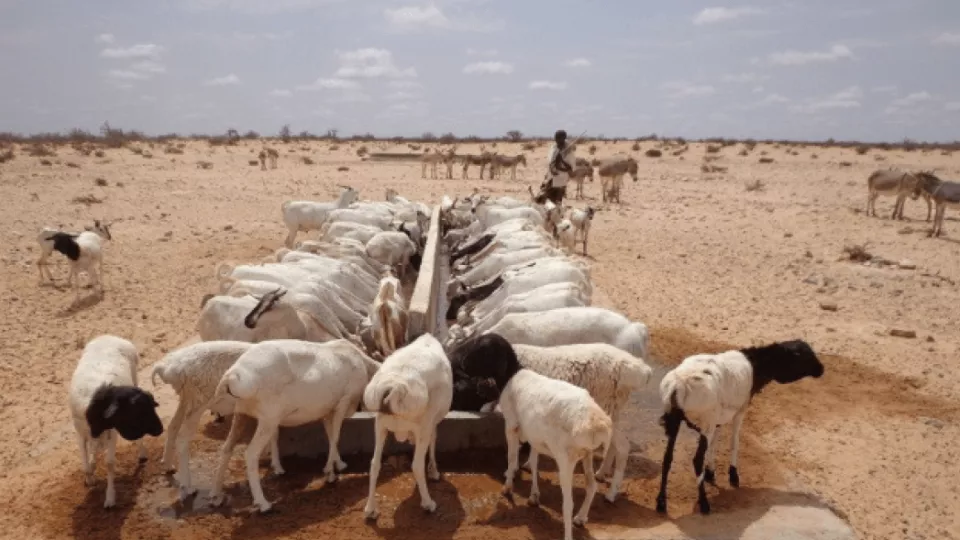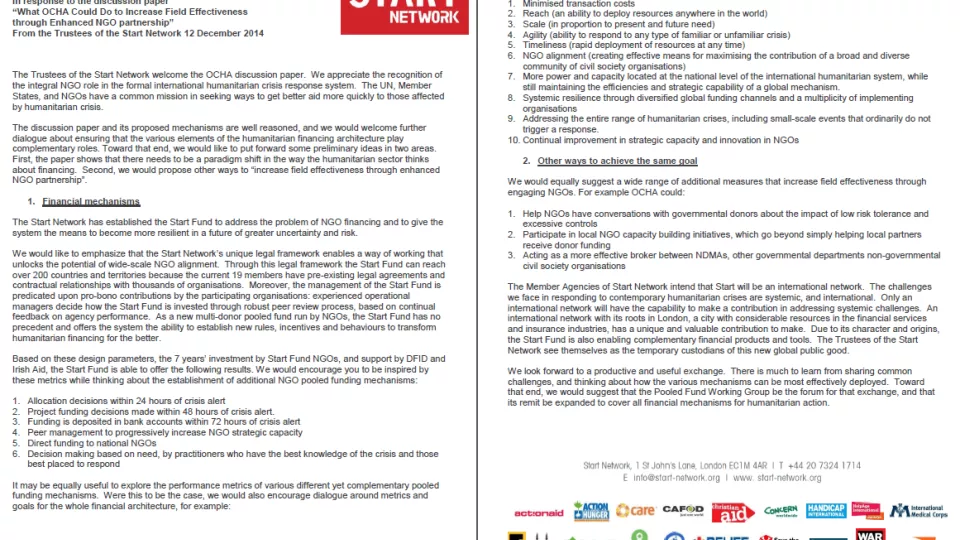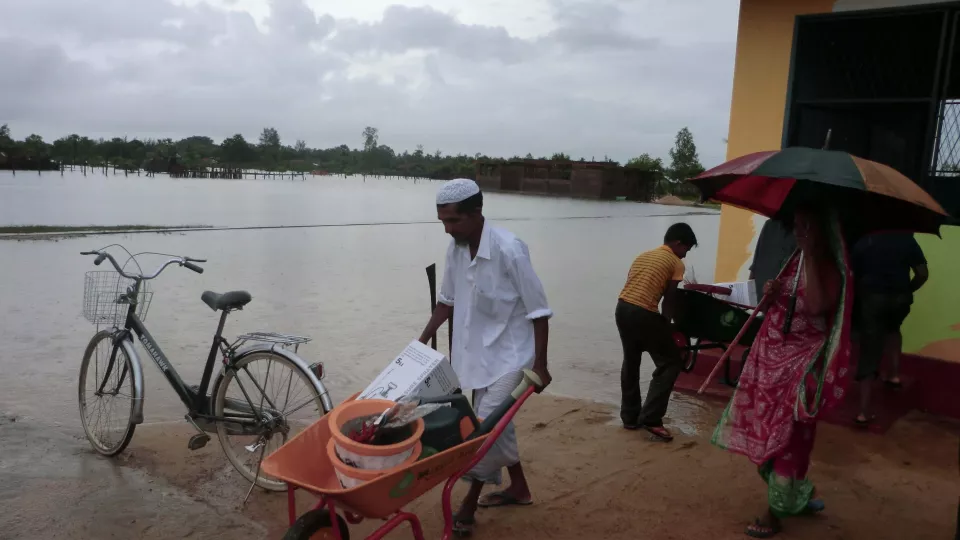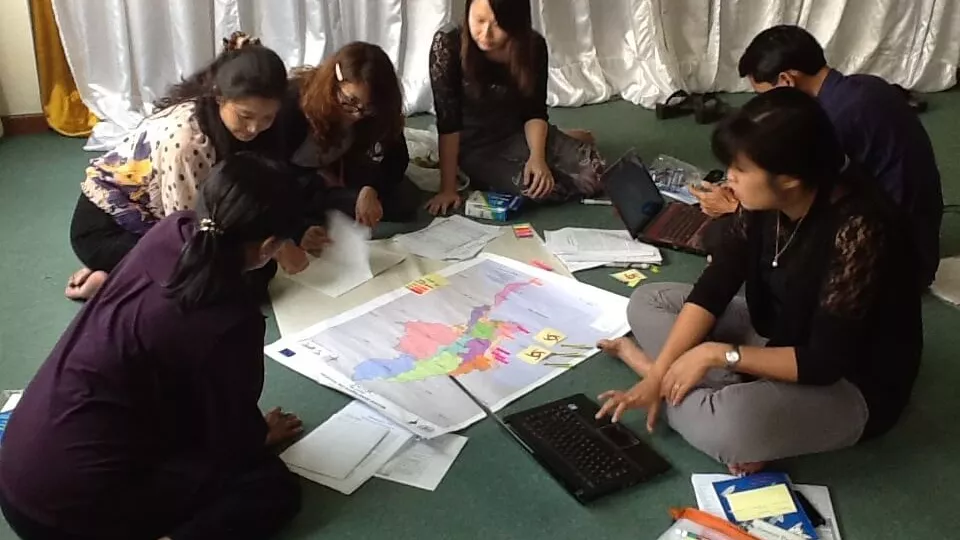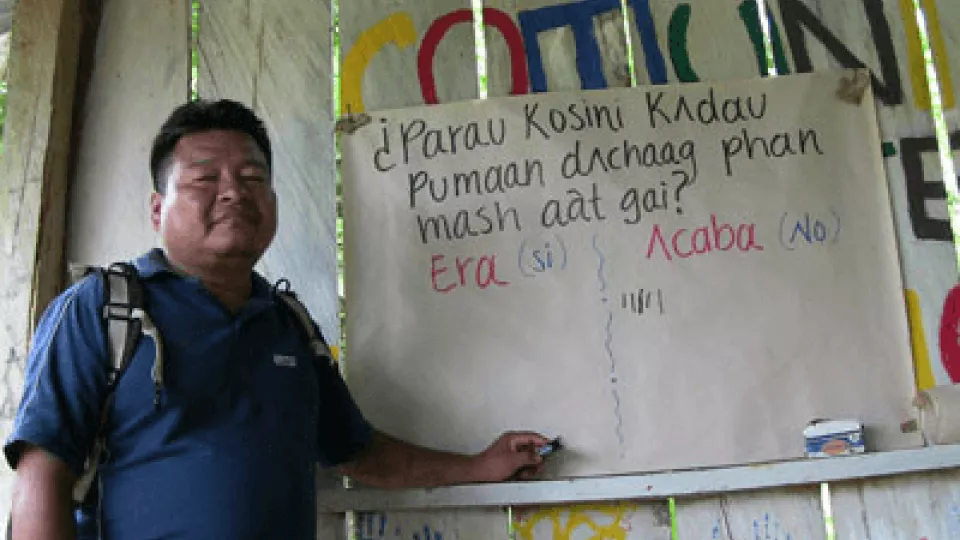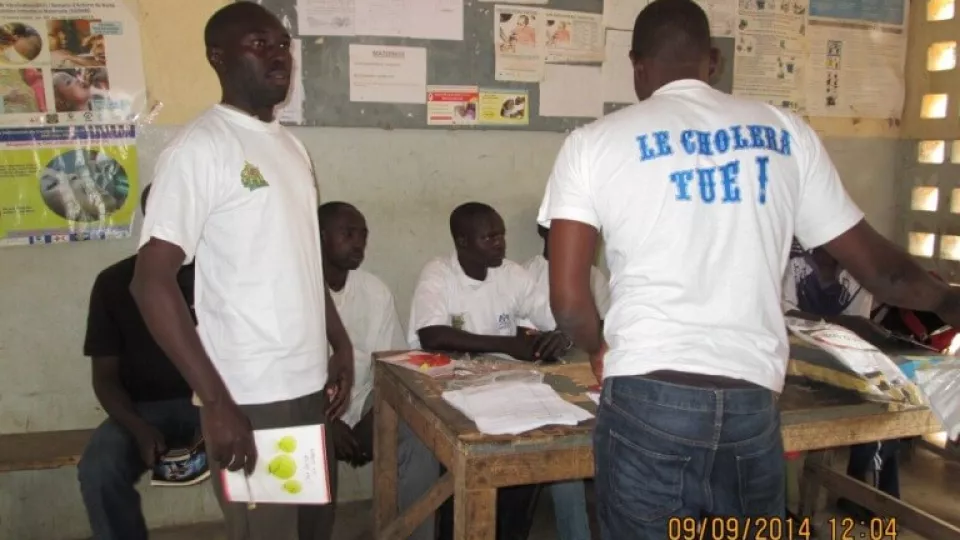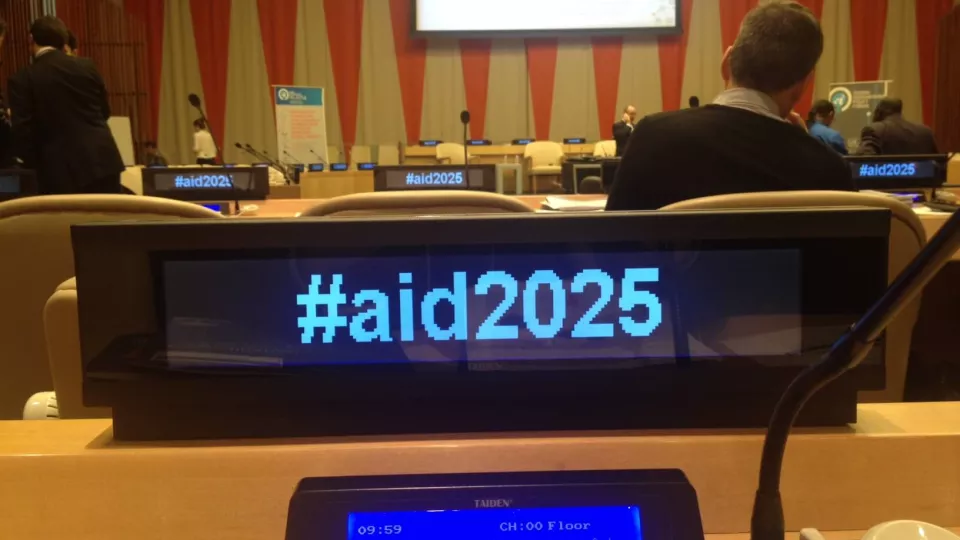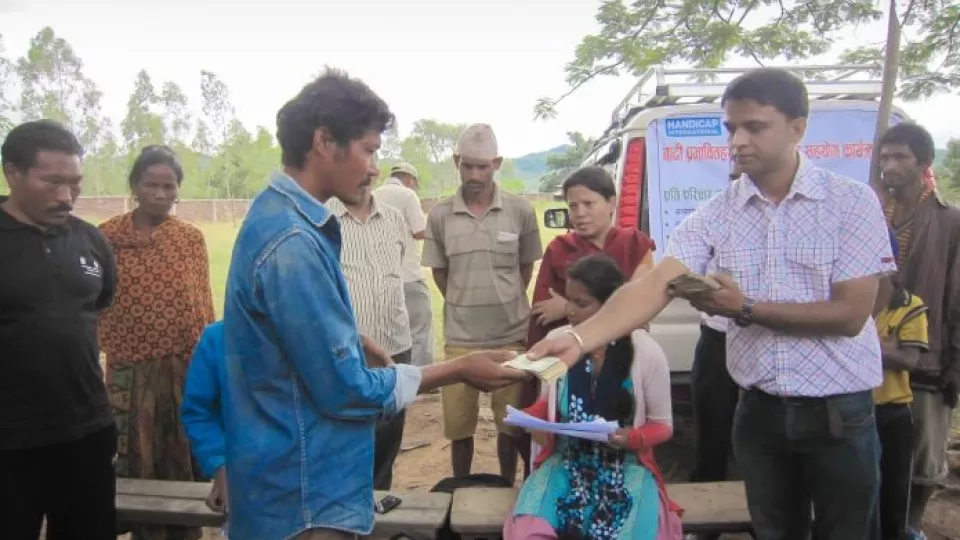The Start Network and GlobalAgRisk will work together to develop a prototype for a Parametric Insurance product with funding from the Humanitarian Innovation Fund.
News and blogs
In 2014 the Network moved decisively from concept to reality, thanks to your contributions: of time, political capital and funding.
Tanuja Pandit shares an update from the engine room of the Start Network.
The Start Network is almost unrecognisable from the consortium of 12 months ago. Here is a run down of our key milestones from 2014.
The Start Fund was alerted for the 20th time on Wednesday to the worsening conflict in Chocó, Colombia.
Summary of Qualitative Findings from the Modified Real-Time Evaluation of IMC’s Start Fund Project in the Far North Region of Cameroon
At the heart of the December 2014 UNOCHA global humanitarian policy conference was the concept of “humanitarian interoperability”.

